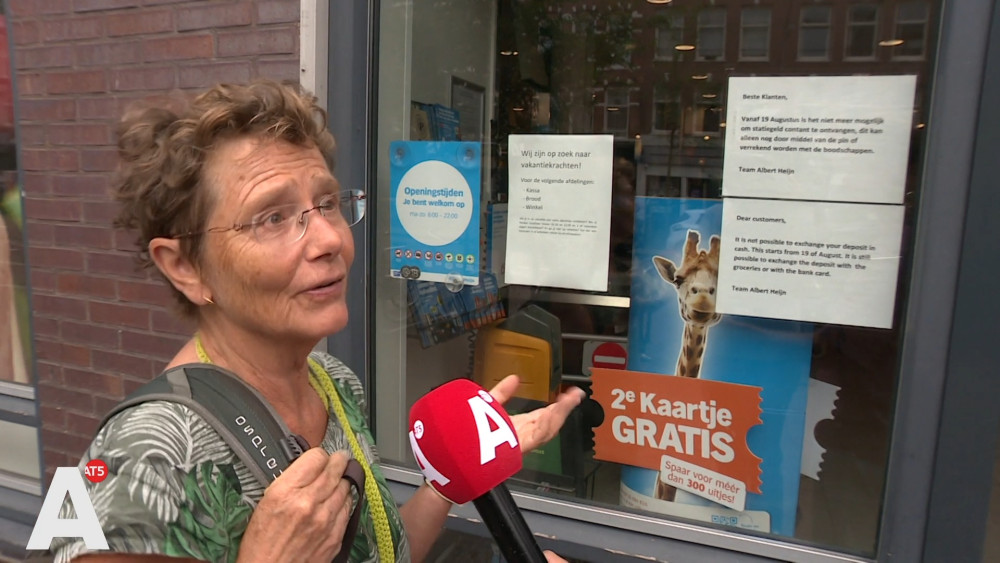Cans and small bottles can be returned to supermarkets for over a year for a 15 cent refund. But despite many efforts, the amount of returned packaging remains very low and the city turns into a huge mess, resulting in a lot of waste. It's also over for supermarkets, who are setting their own additional rules.
Many supermarkets – including the Albert Heijn store on Eerste van Swindenstraat – are no longer offering cash when customers return bottles and cans. The reason: There is too much inconvenience. It has been going on for some time about endless queues at vending machines, faulty return systems and litter on the streets. People with big bags full of packaging ensure that others cannot return their few bottles.
“I have to wait a long time, and it’s very annoying sometimes, but everyone has the right to a deposit,” says a woman standing in front of Jumbo on Jodenbreestraat. They’re taking other measures there: only one plastic bag per person is allowed into the store. “Otherwise it would be too much, the machine is already broken,” says an employee. “This has to be dealt with from top to bottom.”
Woman in front of Albert Hein: “There are a lot of people who only have cash, like the homeless. They need that money and they can't always replace it with the groceries they're doing at that moment.”
Call for additional drop-off points.
It’s not entirely clear how many places there are to exchange your empty packaging for cash. Verpact – the organisation that runs the deposit schemes in the Netherlands – says it’s essential that supermarkets are able to exchange deposits. But how this happens is not legally defined. So whether it’s cash, your account or a voucher, it’s all possible.
“Six return points have been added recently,” a company spokesperson said. This concerns vending machines in locations other than supermarkets. These could be, for example, other types of shops, schools or stations. “There aren’t many, and we’re disappointed about that. We’re trying to make it as easy as possible for the venues. For example, the installation and assembly service is not their responsibility. The only thing the venues have to do themselves is maintain a cleaning machine and fill the bags for delivery.”
Solution to the big problem
It remains to be seen whether these kinds of “small” measures will help. Most people standing in front of the store do not see this as a structural solution: “You are now passing the problem on to other supermarkets,” one customer argues loudly.
“I understand it’s annoying for the shops, but that’s their job,” says one woman who thinks the measures are nonsense. “What would help? Yes, it’s hard. There should be more points and maybe there should be a system that allows you to throw those bags in the bin in one go, instead of one by one.”

Avid music fanatic. Communicator. Social media expert. Award-winning bacon scholar. Alcohol fan.

